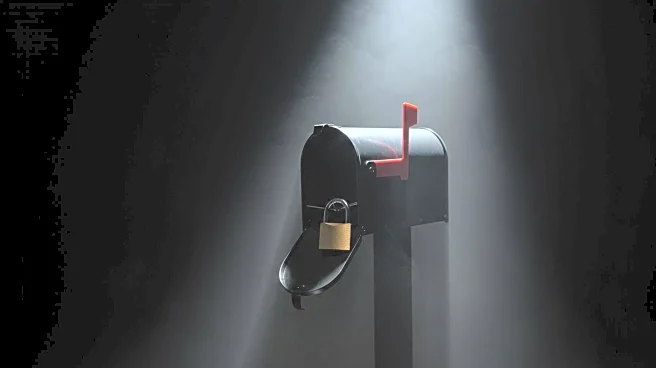What is the story about?
What's Happening?
President Trump has recently expressed intentions to eliminate mail-in voting and voting machines, claiming they lead to voter fraud. His statements, made on Truth Social, have been criticized by experts who argue that these claims are unfounded and potentially harmful. Sophia Lin Lakin from the ACLU's Voting Rights Project highlighted the dangers of undermining mail-in voting, a method used by millions, including Trump himself. Experts emphasize that mail-in voting is crucial for many voters, including those with disabilities and those unable to access polling places easily.
Why It's Important?
The push to end mail-in voting could significantly impact voter turnout, particularly among demographics that rely on this method for accessibility. Critics argue that Trump's rhetoric may erode trust in the electoral process, potentially disenfranchising voters who face barriers to in-person voting. The debate underscores broader concerns about election integrity and the balance of power in regulating voting methods, with experts noting that only Congress and states have the authority to regulate elections.
What's Next?
As the 2026 midterm elections approach, Trump's stance on mail-in voting may influence state policies and voter behavior. Legal challenges could arise if attempts are made to restrict mail-in voting, with civil rights groups likely to contest any measures perceived as disenfranchising voters. The political landscape may see increased polarization as debates over voting methods continue.
Beyond the Headlines
The controversy over mail-in voting reflects deeper issues of trust in democratic institutions and the politicization of election processes. Trump's actions may be part of a broader strategy to question election outcomes and consolidate power, raising ethical concerns about the manipulation of electoral systems for political gain.
















